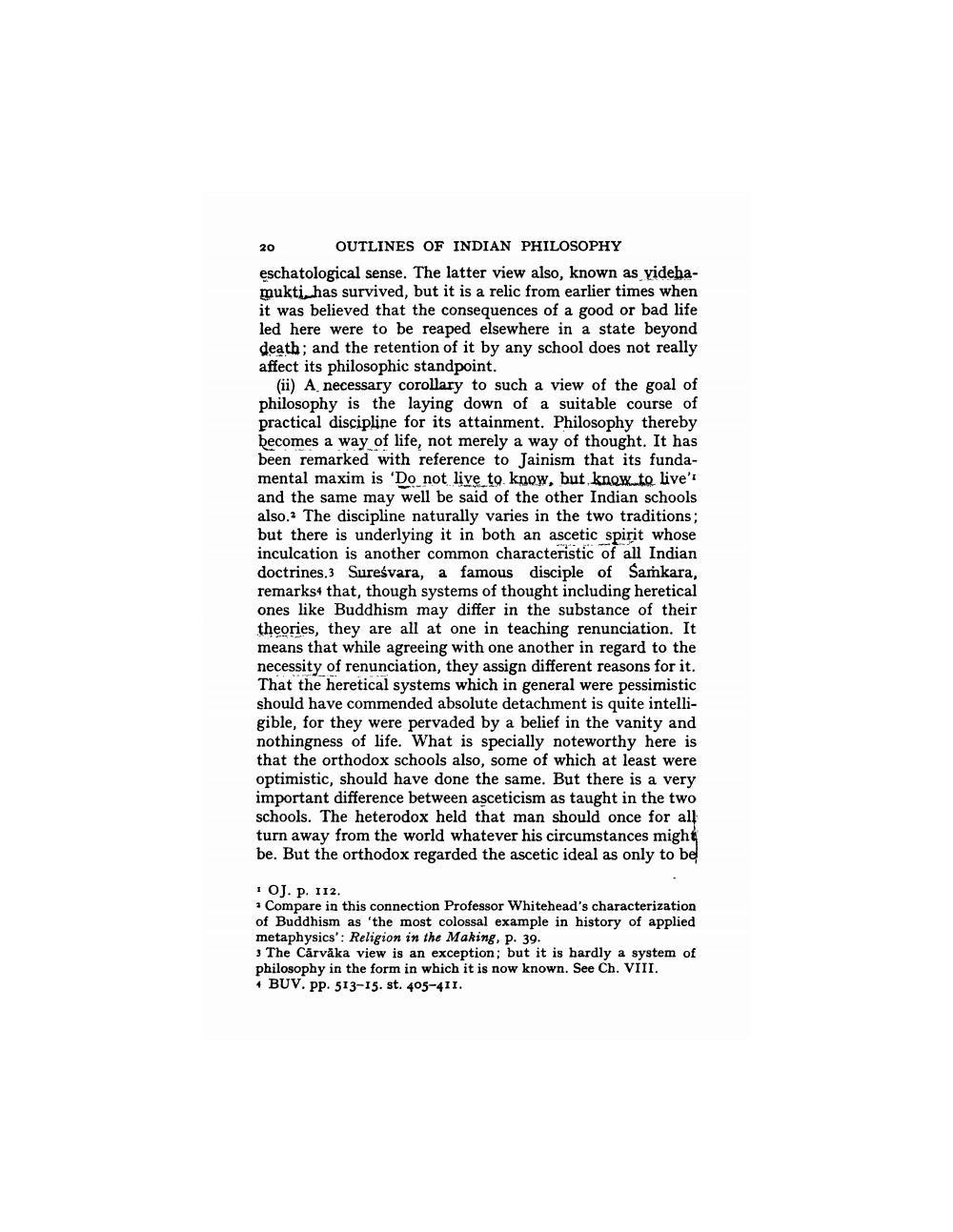________________
OUTLINES OF INDIAN PHILOSOPHY eschatological sense. The latter view also, known as videbamukti has survived, but it is a relic from earlier times when it was believed that the consequences of a good or bad life led here were to be reaped elsewhere in a state beyond death; and the retention of it by any school does not really affect its philosophic standpoint.
(ii) A necessary corollary to such a view of the goal of philosophy is the laying down of a suitable course of practical discipline for its attainment. Philosophy thereby becomes a way of life, not merely a way of thought. It has been remarked with reference to Jainism that its fundamental maxim is 'Do not live to know, but know...to live' and the same may well be said of the other Indian schools also. The discipline naturally varies in the two traditions ; but there is underlying it in both an ascetic spirit whose inculcation is another common characteristic of all Indian doctrines.3 Sureśvara, a famous disciple of Sarkara, remarks that, though systems of thought including heretical ones like Buddhism may differ in the substance of their theories, they are all at one in teaching renunciation. It means that while agreeing with one another in regard to the necessity of renunciation, they assign different reasons for it. That the heretical systems which in general were pessimistic should have commended absolute detachment is quite intelligible, for they were pervaded by a belief in the vanity and nothingness of life. What is specially noteworthy here is that the orthodox schools also, some of which at least were optimistic, should have done the same. But there is a very important difference between asceticism as taught in the two schools. The heterodox held that man should once for all turn away from the world whatever his circumstances might be. But the orthodox regarded the ascetic ideal as only to be
i OJ. p. 112. • Compare in this connection Professor Whitehead's characterization of Buddhism as 'the most colossal example in history of applied metaphysics': Religion in the Making, p. 39. 3 The Cārvāka view is an exception; but it is hardly a system of philosophy in the form in which it is now known. See Ch. VIII. - BUV. pp. 513-15. st. 405-411.




